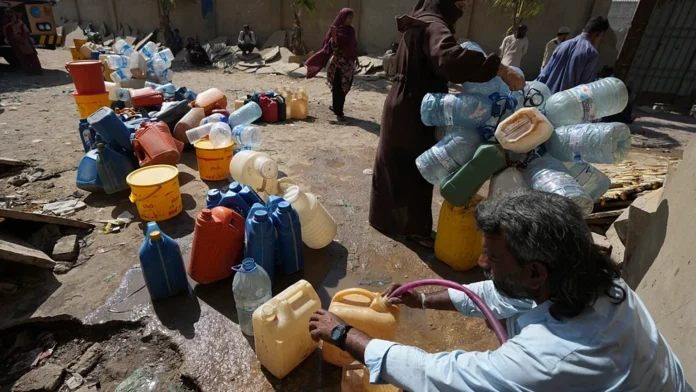A quarter of the world’s population, some 2.1 billion people, still lack access to safe drinking water, according to a joint report released Tuesday by the World Health Organization (WHO) and UNICEF during World Water Week 2025.
The study, Progress on Household Drinking Water and Sanitation 2000–2024: Special Focus on Inequalities, highlights both progress and persistent gaps. It shows that while coverage has improved since 2015, billions remain without safe water, sanitation, and hygiene, with the poorest communities hit hardest.
Globally, 3.4 billion people are without safely managed sanitation, including 354 million who still practice open defecation. Another 1.7 billion people lack basic hygiene services at home, with 611 million having no facilities at all.
The disparities are striking. People in least developed countries are more than twice as likely as others to lack safe drinking water and sanitation, and over three times as likely to be without hygiene services. In fragile states, safe drinking water coverage is 38 percentage points lower than elsewhere.
Rural areas have seen modest improvements—safe drinking water access rose from 50% in 2015 to 60% in 2024, while basic hygiene climbed from 52% to 71%. Urban areas, however, have seen little change.
The report also highlighted the burden carried by women and girls. In many parts of sub-Saharan Africa and Central and Southern Asia, they spend over half an hour daily collecting water. Limited sanitation also affects girls’ education, with many missing school during menstruation.
“Water, sanitation, and hygiene are not privileges; they are basic human rights,” said WHO environment chief Ruediger Krech, urging faster action to meet global goals.
UNICEF’s director of WASH, Cecilia Scharp, warned that children face the greatest risks. “When children lack access to safe water, sanitation, and hygiene, their health, education, and futures are put at risk. These inequalities are especially stark for girls,” she said.
At the current pace, the report cautions, the global promise of safe water and sanitation for every child is slipping further out of reach.

